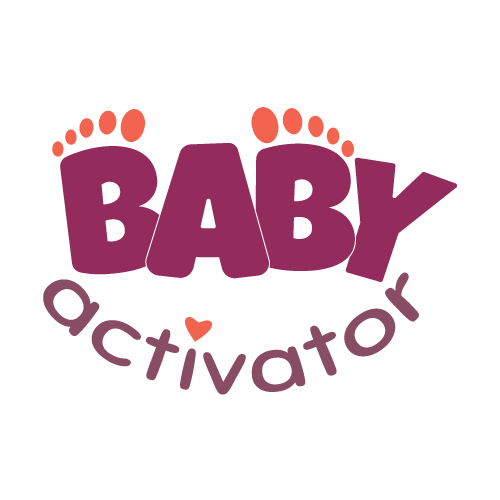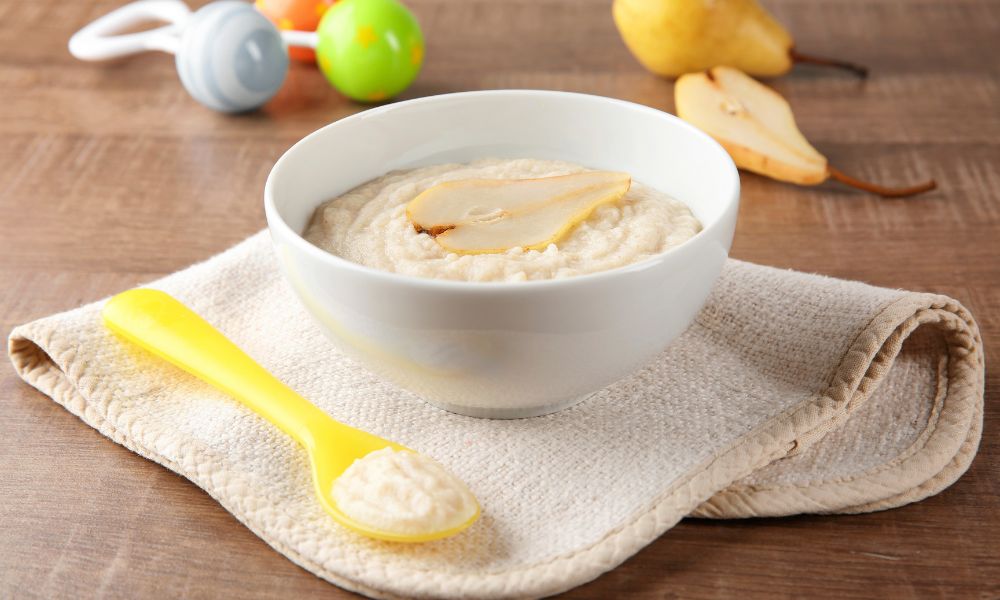Baby cereal is often known as baby cereal. It is a meal manufactured from processed and powdered grains and into a thin powder. It's usually combined with breast milk or formula to provide a smooth, readily digestible porridge-like consistency because of its nutritional richness and ease of preparation. Baby cereal is a favorite for introducing solid foods to infants.
Classic first food has always been baby cereal mixed with breast milk or formula. But you might wonder how cereal fits if you experiment with baby-led weaning. Preparing to provide non-baby cereals like whole grain O's.
Traditional baby cereals, whether spoon-fed or self-fed, can be a significant source of nutrients for new diners once your child has mastered the ability to pick up conventional cereal. Baby-friendly varieties make for a fun, uncomplicated snack.
When To Start Baby Cereal?
Cereals should not be introduced to a breastfed baby before 6 months of age. And cereals should be introduced to a commercially fed baby between 4 and 6 months of age. There is no set time to begin. Instead, we should rely on the cues that the baby gives us.
Ready to start eating cereal:
- Increases the frequency with which people drink, even at night.
- Will have more than doubled their birth weight.
- Despite drinking, he appears to be really hungry.
Suppose you increase the number of drinks for more than three days. And if it still fails to fill them up, you can switch to cereals. Milk must remain the staple food. And it is essential to provide it first, before cereals. Only after 9 months does the milk the baby requires decrease. Allowing for a gradual rise in their consumption of solid foods.
Selecting A First Baby Cereal
Before feeding your baby, you must decide what to feed your baby. There are a variety of cereals and other available options.
The mot of the parents choose rice cereal as their baby's first food. As a new mom, it's a simple choice. Doctors recommend it because of its benefits. It is simple to digest and does not cause allergic reactions. It is well tolerated by babies who have only been fed breastmilk or formula. It's also iron-fortified. These babies require it as their iron stores deplete around six months.
Rice cereal has traditionally been recommended as the best first food for your baby. Many doctors still recommend it. However, it has had bad reports in recent years due to the arsenic found in rice. Prompting parents to consider other options.
If you choose rice cereal, you should start introducing other solids to your baby soon. To ensure they aren't getting only rice cereal, as recommended by the FDA.
Other Cereal Options With Rice
Fortunately, if you want to avoid rice cereal entirely, you can! There is no reason to think. This is your baby's only first food. Many experts agree that any iron-fortified single-grain baby cereal, oatmeal or barley, is a good choice. You may start with other pureed foods.
Can You Give Your Baby Cereal In A Bottle?
Your grandmother may suggest that you mix cereal into your baby's bottle. It helps fill them up so they can sleep better. The CDC states that this practice is not safe. They claim that it will not help your baby sleep better. This practice puts your baby at risk of choking or overfeeding. It may also encourage parents to introduce solid foods to their children before they are ready.
Instead, wait until your baby is 5-6 months old before starting solid foods. And keep an eye out for the other readiness signs provided above. You can now feed your baby with a spoon and introduce finger foods as they become available.
How To Cereal Introduce Your Baby
Breastmilk and baby formula will continue to be your baby's primary source of nutrition. Until they reach the age of one. Cereal is a great way to start them on supplemental nutrition. And change them to solid foods. How do you go about doing it?

Follow these steps to give your baby her very first single-grain cereal:
- Look they meet the recommended readiness indicators. This will not only make feeding time safer for your child. But it will also make it more enjoyable for you.
- Plan to feed your baby after they've had a full breastmilk or formula way their stomach will be mostly full. And they'll be more likely to try a little cereal. (If you try to introduce solids to a hungry baby, a baby will most likely be obstinate!) You'll only feed your baby once per day at first. And you can choose when that is. We recommend picking a time when your baby is usually upbeat!
- Follow the directions given on the label of the baby cereal you've chosen. To get started, you don't need much! For the first couple of feedings, 1 tablespoon of cereal mixed with breastmilk or formula. Until it's runny, consistency will suffice.
- Check that your baby is sitting up straight. This would be ideal in a highchair. But they could also sit on your lap. You'll want them to wear a bib because a lot of your child's food will initially not make it into their mouth.
- Feed your baby with an infant spoon. Do your best to get the spoon into their open mouth. But be aware it will be a bit messy initially as they figure out. It won't be long before they're wide open at mealtime!
- Keep a watch out for cues from your baby that indicate they are full (or have lost interest). It's time to be "all done!" if your baby turns their head, is fussy, or won't open their mouth to eat.
Benefits of Baby Cereal
It has some advantages for your baby. These are the following:
1. Nutritional Value:
Baby cereals are filled with essential nutrients. Nutrients like iron, calcium, and vitamins are available in baby cereal. All these nutrients help to develop their immune system, brain, and bone health.
2. Easily Digestible:
Baby cereals are usually produced from finely ground grains. So they're easy to digest for your baby. They have a smooth texture and reduce discomfort and digestive issues.
3. Introduction to Solid Foods:
It is an excellent way to introduce your baby to solid foods. It helps to adjust to new textures and flavors. Preparing them for a broader range of foods as they grow.
4. Convenience:
Baby cereals are simple to make. It can be quickly blended with breast milk, formula, and water to achieve a smooth consistency. As a result, they are a convenient option for working parents and caregivers.
5. Diet Diversification:
Baby cereal allows you to expand your baby's diet beyond milk. It gives them a different flavor and texture. This helps to broaden their palate. And encourages them to try new foods in the future.
Is A Baby Cereal Choking Hazard?
Cereal is not a common choking hazard for babies. You should still prepare it safely for your child by thinning baby cereal with breast milk or formula (for the youngest eaters). Then, gradually increase the thickness as your child becomes more comfortable with the texture.
Always supervise your young child while she is eating. Sit her upright during mealtimes. And never offer food while she is reclining, walking, sitting in a car seat, or playing.
Is Baby Cereal A Common Allergen?
It all depends! Infant cereals are typically made from rice or oats. These are not common allergens. Some cereals, however, may contain wheat. This is a common allergen. If your baby has a food allergy, ensure about the product. Baby cereal is not processed as an allergenic food. When introducing a new food, watch for any signs of an allergic reaction.
W there are so many different kinds of baby cereal available. However, cereal can be healthy for your baby's diet. It is made specifically for babies or fortified with iron. Baby cereal has essential nutritional value. Before feeding baby cereal, you need to follow the doctor's recommendation. Remember to read nutrition labels carefully. And select cereals with as little added sugar as possible.

